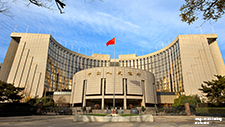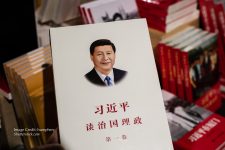China’s Urbanization: Hukou Reforms and Social Justice

Fatoumata Diallo
Abstract
This paper explores the socio-economic impacts of the Household Registration System (Hukou) and the delicate interplay between migration policies and urban development in China. Despite several rounds of relaxation in recent years, the system has exacerbated socio-economic inequalities between the rural and urban population, generating a dual society that prevents the full integration of rural migrant workers in the cities. The legacy of this system poses major obstacles to Beijing’s new development priorities, in particular achieving inclusive and sustainable urbanization. While current efforts to reform the Hukou have made some positive advances, policy changes aiming at restructuring other key administrative structures are necessary to achieve a real “citizenization” of Chinese migrant workers.
Related Publications
-
The Dawn of the Digital Yuan: China’s Central Bank Digital Currency and Its Implications
Summary The COVID-19 pandemic has driven digital innovation and proved to be an enabling episode for the technology industry; the growing focus on central bank digital currencies (CBDCs) comes within such a context. China has rushed to […]
-
Risk Reduction and Crisis Management on the Korean Peninsula
The situation on the Korean Peninsula is inherently intertwined with the growing instability of the East Asian security environment, where high tensions significantly increase the risk of unintended incidents and armed […]
-
Understanding North Korea’s Resilience through Economy, Laws and Governance: a review of introductory sources and essential monographs
This article reviews contributions that may help researchers re-evaluate the question of the North Korea’s remarkable resilience in spite of its undeniable economic failure, a seemingly obscure legal system, and […]
-
Xi Jinping Thought: Xi’s Struggle Against Political Decline
Abstract One of the latest extensions of Xi Jinping’s influence on Chinese society is the incorporation of ‘Xi Thought’ into elementary and middle school curriculums. Like his predecessors, Xi is […]



